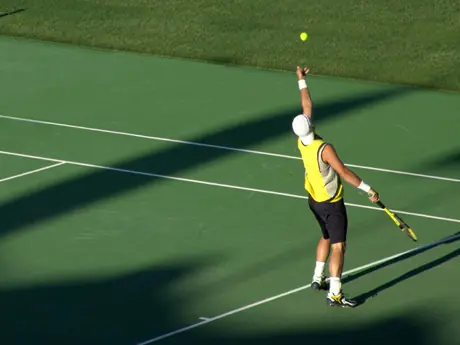
Having a service weapon allows a player to win cheap points, control the court, and dictate play with patterns. A smooth reliable serve saves the player's physical, mental and emotional batteries for breaking the opponent's serve.
At the same time, players who own such an essential tool will tax their opponent's emotions. Any loss of serve means the set is in dire jeopardy. Confidence plays a major role in winning matches, and a big serve can help rob it from opponents. A good question for a player to ask himself is, "Does my serve make me or my opponent pay?" If the player wants to perform at the highest levels of tennis, there can only be one answer.
In other words, your serve counts. Use these four drills to fix bad habits and improve your serve.
Shadow Swings
In this practice exercise, the player first performs a few loose shadow swings and takes notice of the actual flight path of a natural service swing. Ideally, the racquet should extend high above the right ear of a right-handed server. Once the player achieves a fluid service motion, he should switch between a shadow swing and an actual serve with a ball toss. The swing should be identical with and without a ball toss.
Open Stance
The evolution of open-stance footwork has been the primary cause of a change in the modern ground game. Players can essentially coil and uncoil to a larger degree, facilitating additional power and spin. This service drill incorporates the same principles. It will be a great help to players looking to integrate the kinetic chain and synchronize the uncoiling of the larger muscle groups.
To perform this drill, stand along the baseline with both toes facing the net. Coil to the right (left for lefties). Delay the ball toss until the coil brings the tossing hand directly over the baseline. Toss the ball exaggeratedly to the right. Uncoil and abruptly stop the third link (the shoulders), catapulting the fourth link (the hitting arm) into a whiplike frenzy.
Long Bomb
This drill promotes a powerful serve and assists players who are dramatically falling to the side or dropping their head before impact. Engineers call this "opposing force vectors." Energy being pulled in opposing directions robs players of any real possible power.
To execute this drill, simply stand at the back fence and hit line-drive serves directly into the opponent's back fence. The only way to do this effectively and consistently is to keep the head and chest up through contact. If court availability permits, walk four courts over and bomb the serve into the side fence four courts away.
Crackdown
Some players contract the muscles in the hitting arm in the hopes of serving bigger. But the real key to hitting massive serves is having a loose arm that whips the racquet through the hitting zone. This is a great exercise for developing that skill.
Begin with a normal service stance but choke up to the top of the handle with the appropriate continental service grip. Next, toss the ball 2 feet in front of the baseline, but only slightly above the eye level. Accelerate the hand speed and hammer down on the ball, causing it to bounce inside the backcourt and over the net as high as possible. This violent forearm pronation equates to achieving tremendous hand speed and racquet head speed.
More: Two Basic Grips Every Tennis Player Should Know
 Search for your next tennis event.
Search for your next tennis event.
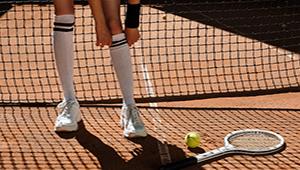
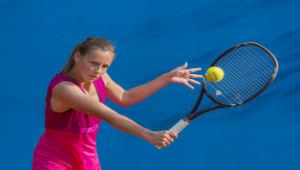
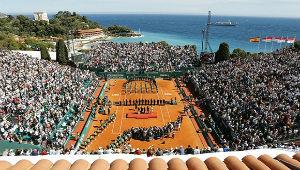
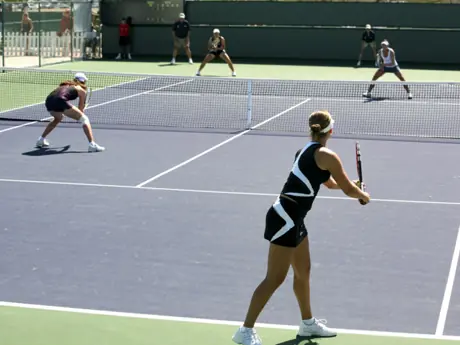
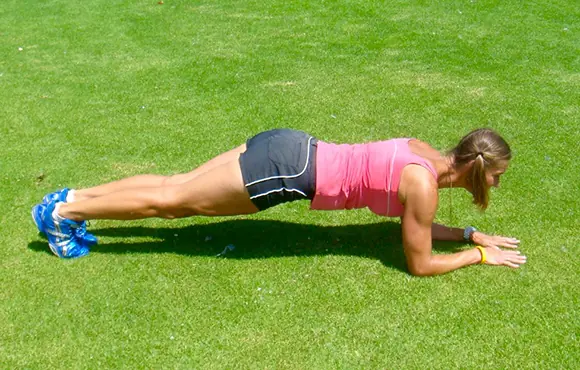
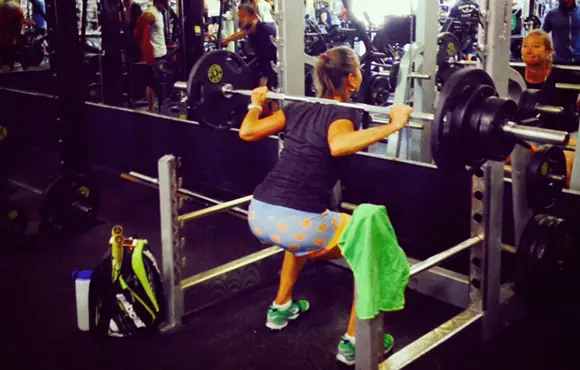

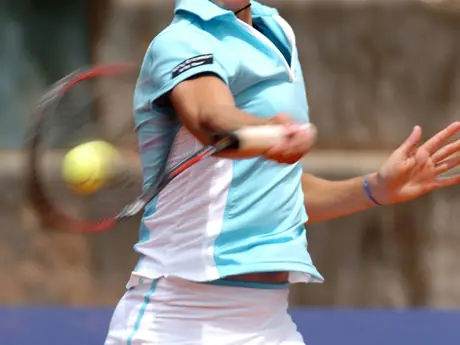
Discuss This Article